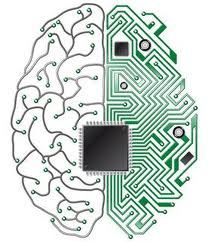CPU (central processing unit) vs Brain
By Shavkat
@Shavkat (140211)
Philippines
September 2, 2012 8:23am CST
As we were been delivered by our dearly mothers to this world, we started to explore. The early stage of normal brain development: thumb sucking, staring the colorful toys, imitating things, saying the first word "mama", etc. Then, motor development follows: lying down, sidelying, creeping, crawling, sitting, and standing. The development contributed as an "engram" to our precious brain, the manner of being uploaded the information. In time, this can be downloaded as an application in transferring the knowledge gained. How fascinating our brain works. The down side, these skills will be regressed as we grow older. Even supplemented with brain boosters to combat against aging process, it is inevitable to have "dementia". Dementia defined as memory gaps. In worst cases, loss of memory manifested in Alzheimer's disease. In contrast, the CPU of computers were designed to store information, same function of our brain. It can hold programs essential for the users of computers. The similarity, CPUs value can be depreciated through years of usage and its functions. At this period, development of modern technologies were growing fast, parallel to vast high economic status of developing countries. Things can be possible, what if the future inventors created chips to be implanted to our brain, are you going to avail and allow to be embedded into your brain? and why?
7 responses
@asliah (11137)
• Philippines
8 Nov 12
hi,
for me i will never allow it to have a chip that will implant to my brain because i still believe that the knowledge we have could never be gone to our brain unlike to the chips that can be stole by anyone in our brain,and aside from that we can also learn many things without the chips that full of information.
@romzee (937)
• Philippines
1 Oct 12
Microchips in your brain?
Well this is still science fiction at the moment but this kind of technology is advancing very rapidly. In fact, some researchers have already had success treating certain diseases by implanting microchips into the brains of rats.
In the future whenever this is possible, I will definitely avail of this technology if it will cure my diseases and give me a quality life.
@winterose (39887)
• Canada
7 Sep 12
First of all the are many forms of dementia, alzheimer's is only one of them. Not every will get dementia, many people's brain remain sharp. Dementia as in Alzheimers is more than memory loss it the total recall of the brain, living people confused, disoriented and scared in many cases. They can start imagining things like people are trying to kill them etc. Their brain has lost most of its functioning and simple tasks like getting dressed might pose a problem because they don't remember how or their mind no longer sends the signals to their body parts to do what they want them to do.
For you question chips are already used for animals so they can be identified if they get lost, and now they are coming out with devices such as armbands for people with alzheimer's so that they too can be tracked if they get lost.
My guess is if they ever implant things in our brains, we would not be able to do much about it, maybe we would not even know.
@_sketch_ (5742)
• United States
2 Sep 12
There are chips they are developing that you take orally and can tell doctors what is going on with the body. The doctor can access this information from miles away. They can even program it to get people to quit smoking and other harmful habits they want to kick. Sounds great, right? But if doctors can receive these signals from so far away, who else can? Furthermore, if this chip can be programmed to get a person to change their behavior, then what if someone has a reason to want to change other behaviors? Would the person even be aware of what behaviors are a result of the chip, rather than their own volition?
I worry about similar problems with the chip you are talking about. As things are now, no I would not trust a foreign computer in my brain.
@dorannmwin (36392)
• United States
4 Sep 12
The thought of having a chip implanted in my brain would be something that I don't think that I would ever be able to have done. The reason that I wouldn't ever be able to do something like this is because of the fact that I am a human being and for that reason I am meant to have flaws. In addition to that, I really do think that the essence of a human being is the fact that we are able to learn and grow through our lives and though there might come a time that we start to lose our cognitive abilities, it is something that we all realize is only a part of being a human being.
@marinerpulak (1702)
• India
2 Sep 12
hey Shavkat.... the most important difference I can say is brain makes CPU
the most important difference I can say is brain makes CPU
 the most important difference I can say is brain makes CPU
the most important difference I can say is brain makes CPU
@McCreeper (777)
• United States
2 Sep 12
While I'm sure that this will grant us the power to have limitless information, I can't help but think that this information will be a fixed amount until paid for either more memory.. Or of course, the futuristic dystopian movies that come out once in a while..












